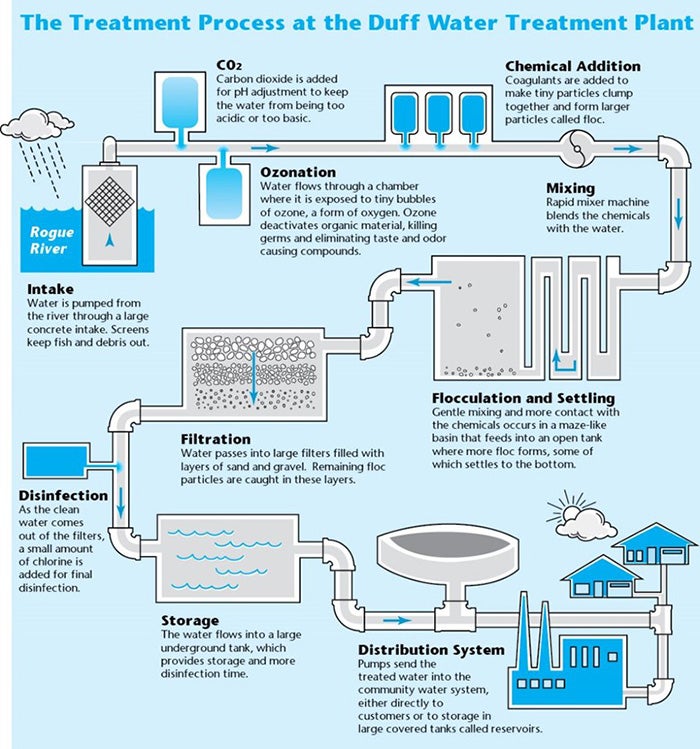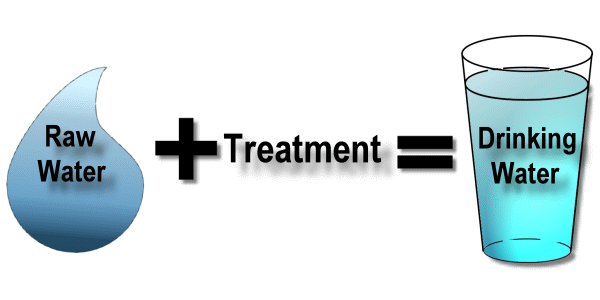Discovering Water Technology Startups: Just How They Revolutionize Sustainable Solutions
Water Technology startups are arising as crucial players in the quest for sustainable options to international water concerns. These business utilize cutting-edge modern technologies to improve water effectiveness and administration. Their payments address pressing obstacles such as deficiency and contamination. However, regardless of their possibility, they encounter different obstacles that could affect their success. Understanding these characteristics clarifies the future of water sustainability and the duty these startups may play in forming it.
The Relevance of Water Technology in Today's Globe
As worldwide water scarcity heightens, the significance of water Technology comes to be progressively evident. Water Technology plays a vital role in dealing with the difficulties posed by enhancing and diminishing fresh water resources need. It includes a broad array of advancements, including advanced filtering systems, wastewater treatment technologies, and wise watering options. These advancements not only improve the efficiency of water use yet additionally promote sustainable techniques throughout various markets, including agriculture, sector, and urban growth.
Additionally, the relevance of water Technology extends past resource management. It promotes durability versus climate modification influences, such as floodings and dry spells, by offering flexible remedies for water conservation and monitoring. In addition, it supports public wellness by making sure access to safe and tidy alcohol consumption water. As the world faces expanding water-related difficulties, the combination of innovative water innovations is vital for fostering lasting growth and safeguarding water accessibility for future generations.
Ingenious Solutions From Water Technology Startups
While typical techniques to water management have actually served their function, a brand-new wave of water technology start-ups is changing the sector with ingenious solutions (Water Technology Startups). These companies utilize cutting-edge modern technologies to attend to pressing water problems, such as shortage, contamination, and ineffective distribution. Lots of startups use synthetic knowledge and artificial intelligence to maximize water use and forecast demand, leading to more sustainable practices
Additionally, several companies concentrate on developing innovative filtering systems that eliminate pollutants and make water safe for intake. Others discover decentralized water therapy modern technologies, enabling communities to handle their water resources a lot more efficiently. Moreover, some start-ups are pioneering smart watering options that minimize water waste in farming, advertising environmental preservation.
Situation Researches: Successful Water Technology Startups
Many water Technology start-ups have arised as leaders in addressing worldwide water obstacles with cutting-edge methods. One noteworthy instance is Xylem, which focuses on water analytics and wise framework to optimize water use and minimize waste. Their solutions have been applied in various communities, showing significant improvements in water management effectiveness.
Another effective startup, Zero Mass Water, has actually established solar-powered hydropanels that extract water vapor from the air, supplying sustainable drinking water in dry areas. Water Technology Startups. This Technology has actually been deployed in a number of nations, making certain communities have accessibility to clean water
AquaVenture Holdings runs a varied portfolio of water-as-a-service services, resolving water scarcity via desalination and wastewater treatment. Their projects have actually proven necessary in areas facing serious water scarcities, showcasing the possibility of innovative water modern technologies to produce long lasting, positive influences. These study highlight the transformative capacity of start-ups in the water Technology industry.
The Duty of Smart Technology in Water Management
Smart Technology plays a crucial duty in contemporary water administration by leveraging IoT applications to optimize source usage. Data analytics boosts efficiency by providing workable insights, while remote tracking solutions make it possible for real-time oversight of water supply. Together, these innovations transform just how water is handled, promoting sustainability and functional efficiency.
IoT Applications in Water
As water shortage and monitoring difficulties magnify around the world, the combination of Internet of Points (IoT) applications has become an essential service in optimizing water resources. IoT Technology promotes real-time tracking and analysis of water supply, enabling extra efficient usage and management. Sensing units deployed in numerous water facilities can track top quality, flow prices, and leakage, providing valuable data to stakeholders. This information equips consumers and energies to make informed decisions, decreasing waste and boosting preservation initiatives. In addition, smart irrigation systems use IoT to optimize water shipment for agriculture, making sure that crops get the correct amount of water at the correct time. In general, IoT applications are changing conventional water administration techniques, fostering sustainability and durability in water source systems.
Data Analytics for Performance
Utilizing information analytics is essential for improving effectiveness in water monitoring. Water Technology start-ups are significantly utilizing advanced analytics to optimize resource allocation and reduce waste. By analyzing data from various resources, these start-ups can recognize patterns and patterns that inform much better decision-making. As an example, anticipating analytics can forecast water demand, enabling utilities to change supply appropriately, consequently decreasing excess and lacks. Furthermore, real-time data processing allows the instant detection of leakages and inadequacies within circulation systems, considerably decreasing operational prices. Data-driven understandings encourage stakeholders to apply targeted preservation techniques, fostering lasting methods. Fundamentally, incorporating data analytics right into water monitoring not only streamlines procedures however also advertises long-lasting sustainability in water resource use.
Remote Tracking Solutions
While typical water administration systems commonly fight with inefficiencies, remote surveillance services are changing exactly how water sources are handled. These cutting-edge modern technologies allow real-time information collection and analysis, allowing stakeholders to check water top quality, circulation rates, and use patterns from afar. Making use of sensing units and IoT devices, remote surveillance gives prompt insights that facilitate positive decision-making. This shift not just improves functional effectiveness yet also advertises sustainability by reducing water waste and maximizing source allowance. Additionally, remote monitoring systems can determine prospective problems before they rise, thereby decreasing the threat of contamination or framework failing. As water Technology start-ups remain to establish these remedies, the industry is poised for considerable innovations in sustainable water management practices.
Difficulties Dealing With Water Technology Startups
Water Technology start-ups encounter significant difficulties that can prevent their development and success. Trick issues include securing appropriate financing, steering via complex regulatory atmospheres, and contending in a congested industry. These obstacles call for critical planning and advancement to get rid of.
Financing and Financial Investment Hurdles
Although advancement in water Technology holds immense possibility for dealing with global obstacles, start-ups in this field usually face substantial financing and financial investment obstacles. Several investors continue to be careful, perceiving the water field as risky due to its intricate regulative landscape and lengthy development timelines. In addition, start-ups typically struggle to show immediate success, which can deter possible backers. Typical venture resources might forget water modern technology, favoring industries with quicker returns, such as tech or consumer goods. Furthermore, securing gives and federal government funding can be affordable and lengthy, additional complicating economic security. Water Technology Startups. As an outcome, lots of innovative water Technology startups locate themselves in a precarious placement, requiring innovative financing approaches to navigate these monetary obstacles and achieve their goals
Governing Compliance Issues
Guiding governing conformity is a significant difficulty for startups in the water Technology sector, as they must face a myriad of regional, national, and international regulations. These guidelines frequently include water top quality requirements, environmental management laws, and security procedures, which can differ extensively throughout territories. Start-ups might find it difficult to navigate this complex landscape, especially when scaling operations or going into new markets. The expenses related to conformity can be significant, drawing away sources far from technology and item development. Additionally, delays in getting necessary permits or accreditations can impede growth and market entrance. A robust understanding of regulatory frameworks is crucial for these startups to guarantee lasting procedures and prevent potential legal consequences.
Market Competition Characteristics
As water Technology start-ups emerge in an affordable landscape, they encounter many difficulties that can hinder their growth and advancement. Developed companies commonly dominate the market, leveraging resources and experience to keep their settings. Startups have problem with restricted funding, which limits r & d capabilities, making it tough to contend on Technology and prices. Furthermore, the swiftly developing nature of water innovations needs constant adaptation, further straining start-up resources. Regulatory difficulties can complicate market access, as compliance with ecological standards is vital yet pricey. Bring in competent ability in a specific niche area presents an additional challenge, as bigger firms may provide even more appealing employment bundles. These aspects develop an intricate atmosphere for water Technology start-ups intending to do well.
The Future of Water Technology and Sustainability

The future of water Technology will likely concentrate on incorporating expert system and data analytics to maximize water distribution and usage patterns. By using real-time data, firms can anticipate lacks and manage resources extra properly. Sustainable methods will come to be a cornerstone of the industry, encouraging round economies where water is recycled and dealt with. Ultimately, the ongoing advancement of water Technology will be crucial in producing resilient infrastructures with the ability of meeting the challenges postured by climate modification and populace growth while promoting environmental stewardship.
Often Asked Questions
What Are the Trick Metrics for Evaluating Water Technology Startups?
Key metrics for evaluating water Technology startups consist of market capacity, scalability, consumer acquisition expenses, profits development, modern technology innovation, regulative conformity, ecological influence, competitive benefit, and team proficiency, all critical for figuring out lasting viability and success.
Exactly How Can People Assistance Water Technology Innovations?
Individuals can support water Technology advancements by buying startups, advocating for policy modifications, joining area campaigns, sharing expertise concerning sustainable practices, and promoting recognition of water issues with social networks and regional occasions.
What Prevail Funding Sources for Water Tech Startups?
Typical financing resources for water technology start-ups consist of financial backing, federal government gives, crowdfunding systems, angel capitalists, and business partnerships. These monetary opportunities help assist in advancement and development in sustainable water management technologies.

Which Industries Advantage The Majority Of From Water Technology Advancements?
Industries such as agriculture, power, production, and local services benefit considerably from water Technology advancements. These technologies improve water efficiency, lower costs, and advertise sustainable techniques, ultimately adding to environmental preservation and resource monitoring.
Are There Any Regulative Obstacles Details to Water Innovation?
Yes, water Technology faces governing difficulties, including conformity with environmental criteria, allowing processes, and varying local policies. These complexities can prevent innovation and slow the execution of new modern technologies in the water administration sector.
Water Technology start-ups are emerging as crucial players in the quest for sustainable options to global water click here concerns. As global water scarcity heightens, the relevance of water Technology ends up being increasingly obvious. Others discover decentralized water therapy modern technologies, permitting communities to manage their water sources extra efficiently. One more successful startup, Absolutely no Mass Water, has established solar-powered hydropanels that extract water vapor from the air, providing lasting drinking water in arid areas. Their tasks have actually proven crucial in regions dealing with severe water scarcities, showcasing the potential of ingenious water technologies to create long-term, favorable influences.